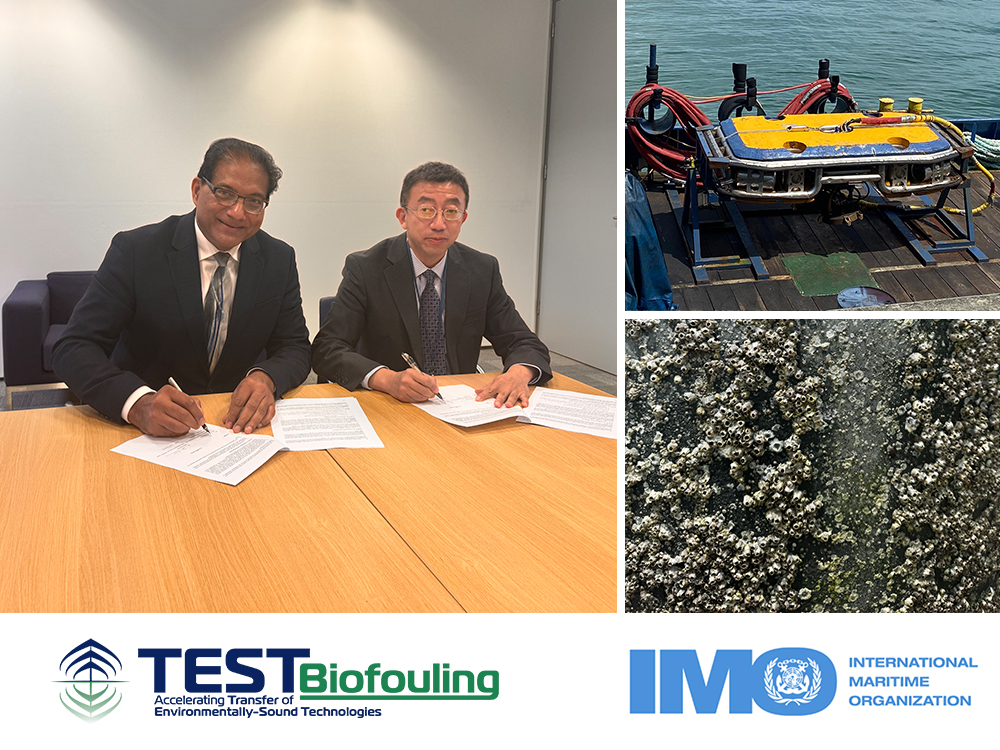A new partnership agreement between IMO’s TEST Biofouling Project and the Maritime Technology Cooperation Centre of Asia (MTCC Asia) aims to support the region in managing ships’ biofouling and addressing the spread of invasive aquatic species.
Biofouling – the accumulation of microorganisms, plants, algae and animals on submerged ship structures (especially hulls) – can lead to the transfer of invasive aquatic species to new environments, threatening marine biodiversity.
The Implementing Partnership Agreement signed between TEST Biofouling and MTCC Asia will support capacity-building activities and piloting innovative technologies for biofouling management in the project’s beneficiary countries of the region. This includes lead partnering countries Indonesia and the Philippines, as well as partnering countries China and Malaysia.
Under the agreement, MTCC Asia will support the project by co-organizing workshops and training sessions on biofouling management for maritime stakeholders in the region to enhance technical expertise and promote knowledge sharing. It will also assist in implementing technology demonstration pilots tailored to the specific needs of the country, showcasing best practices for national maritime industries.
The agreement will strengthen MTCC Asia's capabilities in promoting sustainable biofouling management practices within the region.
About TEST Biofouling Project
Funded by Norway, the TEST Biofouling Project (“Accelerating Transfer of Environmentally Sound Technologies through demonstration pilots to reduce biofouling and related emissions”) focuses on capacity development, national demonstration pilots of novel technologies in biofouling management, and supporting the implementation of the IMO Biofouling Guidelines. TEST Biofouling activities are delivered through the IMO’s Maritime Technology Cooperation Centres (MTCCs) established under the EU-funded Global MTCC Network Project (GMN).
